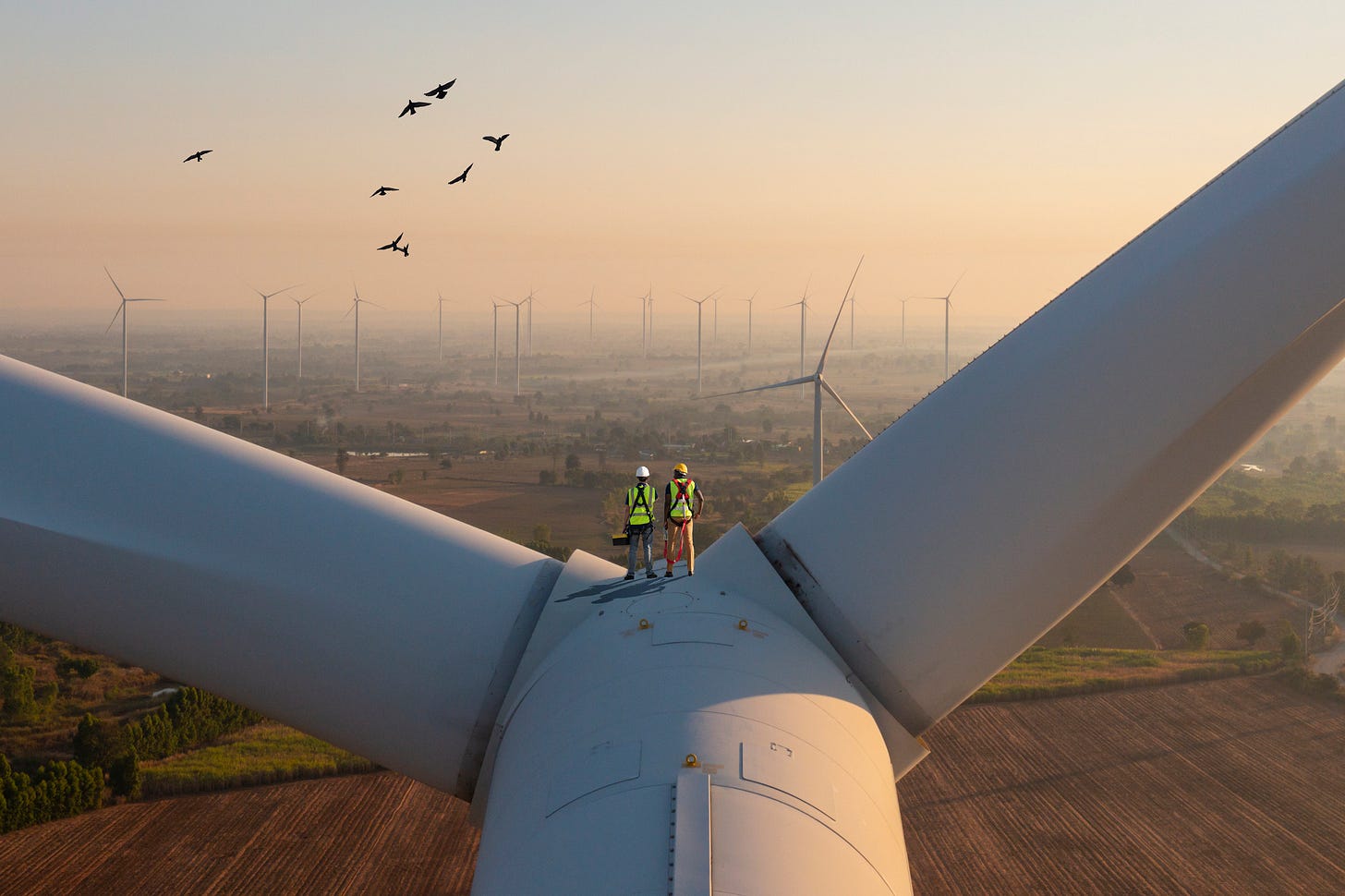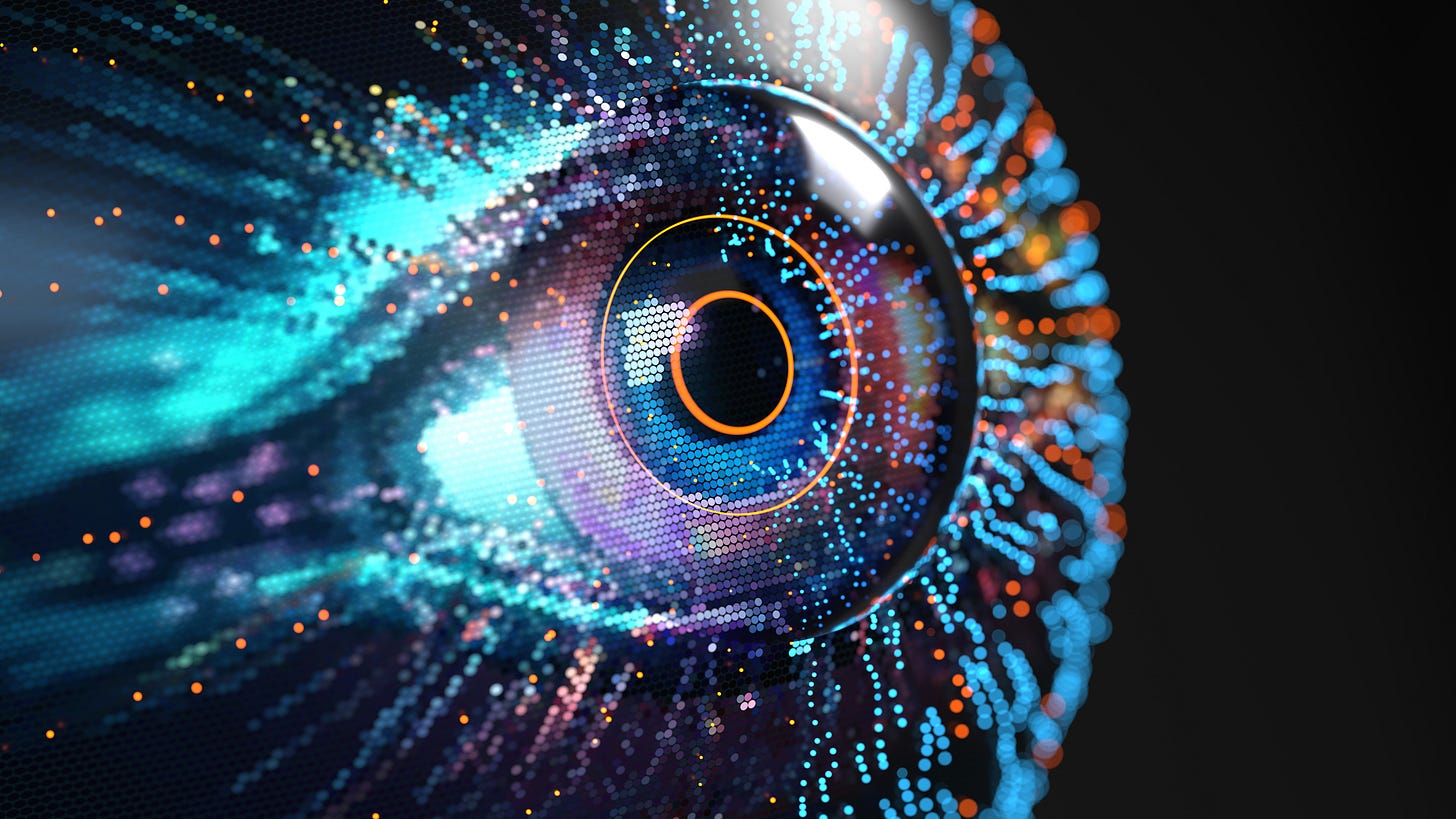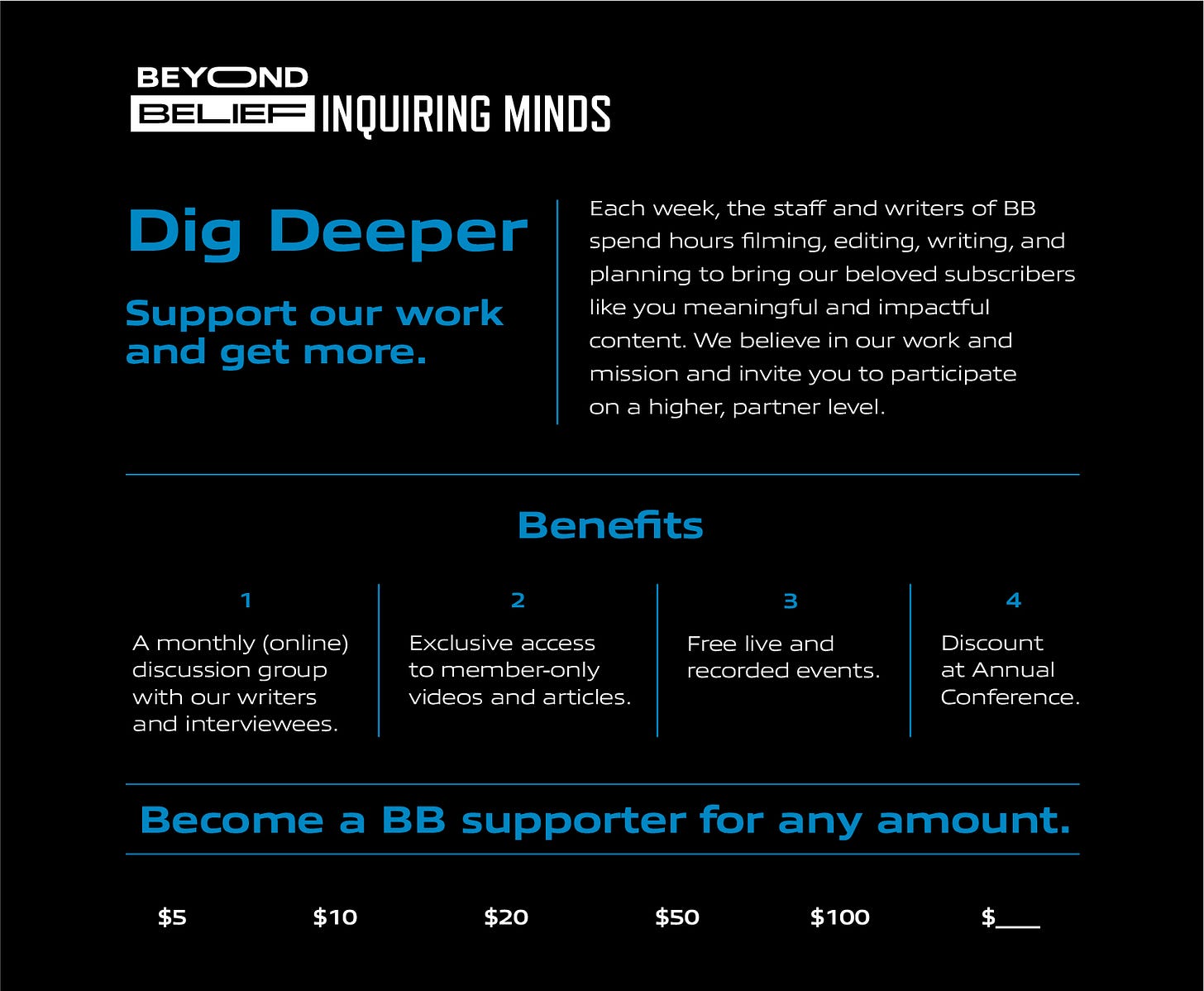Does technology make us more, or less, human?
Technology, wisdom, and becoming a better human.
If we had to choose just one thing that characterises modern life, it may well be technology.
Technology constantly surrounds us. It’s the device that you’re reading this article on, the device that I wrote it on, and the medium by which it was sent from one to the other. Technology appears in a million different forms every day of our lives.
Precisely because of this ubiquity, technology can be a tricky subject to properly grasp. It includes conspicuous novelties, like AI, as well as items that are so accepted as part of our world that we forget that they’re technology too—clothes and buildings, for example.
One consequence of this slipperiness is that people’s feelings toward technology can diverge quite starkly. Some people—let's call them techno-skeptics—feel distinctly uneasy about the reach of technology in our lives: they worry that it can undermine aspects of life that are rightly important to us, even if these are occasionally hard to articulate: how we relate to other people, for example. Some more radical techno-skeptics even want to live low-tech lives, like the hippies of the 1960s, turning away from certain technologies altogether in the hope of living (what they perceive as) a more natural life.
Other people, however—who we might call techno-optimists—take the ubiquity of technology to be a reason to celebrate it in almost all its forms. From fire and stone tools onwards, they would say, the development of technology has always been a part of us. The invention of AI is just the next step, so it doesn’t really undermine our nature, because it’s our very essence to keep changing according to our technological inventions.
So who’s right about this defining feature of modern life – the techno-optimists, or the techno-skeptics?
Man the maker
You might, in fact, find yourself partly agreeing with both positions. I certainly do. As is often the case with two deeply polarised points of view, the truth no doubt lies somewhere between. The hard philosophical work lies in working out where exactly that truth falls—so let’s try.
The techno-optimist position is currently very popular amongst Silicon Valley entrepreneurs, as well as young people who aspire to be like them. What it gets right is the indispensable role that technology has in human life.
To see why, we can turn to the subdiscipline known as philosophical anthropology, which is concerned with defining human nature and the human condition. Over the centuries philosophical anthropologists have pointed to various phenomena that are, overwhelmingly, human capacities. Language, morality, art, and religion are common examples—and so is technology.
While it’s true that birds build artificial structures (their nests), and apes and corvids sometimes make rudimentary tools out of sticks and stones, human beings’ use of technological devices far exceeds all of this in both complexity and scale. Even in nomadic or hunter-gatherer societies, which tend toward lighter infrastructure than agricultural ones, the degree to which technology is woven into human life is remarkable. Adults, at least, will almost always wear some form of clothing, carry various weapons and tools to collect food, and then cook the latter in one form or another. They may also make music (often involving instrumentation), adorn their bodies, or engage in some other kind of decorative or artistic activity.
For the brilliant philosophical anthropologist Ernst Cassirer (1874 –1945), the layers of abstraction and invention present in human life—language, religion, and so on— together provide us with an essence: we are, he says, the animal symbolicum, or symbolic animal—the animal that is defined by living in a world of symbols as much as a world of objects. Technology is, in part, one dimension of our defining capacity for abstraction: it’s the reuse of raw stuff to invented ends.
More than this, though, technology cuts across and enhances other dimensions of our symbolic existence: allowing us to transform language into writing, our dreams into art, and mere shelters into temples and shrines to the beyond.
Promise and peril
To this extent, then, the techno-optimist is correct: without technology, we would not, in fact, be human.
Does this mean that any and all innovations are desirable, however? Clearly not: and it’s for this reason that there’s a deep wisdom in the techno-skeptic position.
On one level this is an easy argument to make: presumably not even the wildest techno-optimist would argue that lab-developed superviruses, or microplastics that will be used once and then swirl around the oceans for a thousand years, are positive innovations. Techno-skeptics might go further than this, though, and argue that what really matters in life—the good, the true, the beautiful—‚can be subtly corrupted and diminished by technology just as easily as they can be realised.
This claim applies to both the macro and micro scales. Take the macro scale of modern civilisation: the industrial revolution gave us railways, electricity, telecommunications, and mass production—all of which have lifted the standard of living for billions of people worldwide. It has also brought about anthropogenic climate change, catastrophic biodiversity loss, and—albeit indirectly—the bloodiest wars and genocides in human history. Even if we think that price was worth paying, it’s undoubtedly a hefty price to pay nonetheless.
Perhaps the techno-skeptic position is more persuasive on a smaller scale, though. Take the explosion of social media in the mid-2000s, which initially seemed like a thoroughly positive development. Even more than the chance to chat with circles of friends online, I was excited by the idea that social media would allow better-informed and connected citizens to challenge governments, corporations, and mainstream media.
Perhaps that did happen, for a while. By the mid-2010s, however, it seemed a hopelessly naïve idea. By then the drawbacks of social media were all too apparent: most obviously the proliferation of misinformation and conspiracy theories, and the mental ill health of atomised young adults. Are our democracies and young people really healthier today than they were in the 1980s and 1990s before social media existed? It’s hard to answer that question in the affirmative.
Means and ends
Even if there’s some truth to the techno-skeptic position, then, it still has to be balanced out by the techno-optimist's insight that technology is inherent to the human condition. What kind of principle could strike the balance between them?
Interestingly, one promising answer to this question is found in the work of a philosopher who knew nothing of modern civilisation: Aristotle (384 – 322 BCE). What Aristotle saw with great clarity was that all things of value only count as such if they ultimately lead toward something that is good in its own right, without reference to anything else. Aristotle argues that this latter good-in-itself is eudaimonia, which roughly translates as flourishing or living well.
For Aristotle, the most important thing for living well is that we cultivate virtues, like courage and prudence—both as individuals and society as a whole. He also, however, suggests that developing the capacity for arts and crafts (technê, in Greek) is a kind of intellectual virtue.
One of Aristotle’s examples of technê is shipbuilding, which, in his time, any flourishing society would have to have mastered. His point, though, just as easily applies to the invention and mastery of modern technologies, such as renewable energy sources. It is hard to imagine a society that flourishes in the modern age without the knowledge of how to attain energy through renewable means, whether these means are high-tech (as we expect in the West), or more traditional. Here, then, is a recognition that technology belongs to being human, and the development of our faculty for it counts as a positive trait, generally speaking.
Ultimately, however, Aristotle holds that technologies can only ever be a means to the end of living well. Technology is not an end in itself, which is a mistake sometimes made by the Silicon Valley gurus. Working out how we live well with technology involves developing what, for Aristotle, counts as the master virtue: wisdom (phronêsis). Wisdom is the ability to know what is good and how to attain it through the best course of action. It is what should ultimately govern our decisions, both as individual agents and as a political community – and this includes how, and when, we use technology.
As we’ve seen, we can never escape technology as a whole without ceasing to be human. The wise thing to do, however, is to ask which technologies are most conducive to our individual and collective well-being, and how we might reign in the negative effects of those technologies that stand to undermine it. We could, for example, place sensible limits on our own use of social media, leaving more time for in-person communication with others, enjoyment of nature, and reflection on the good and beautiful. Similar measures might be applied across other technologies that techno-skeptics have reasonable concerns about, too.
This would, I think, be the wise course of action. As Aristotle shows us, if we develop our faculties for both technology and wisdom, then we’ll be on the way to becoming better human beings.








Oh you are most welcome. I am not a fan of the "either–or" paradigm and wrote a whole essay on the topic of binary thinking. My nephew is in his 40s and he does that with his phone. It drives me nutz. I ask him "am I boring you?" He never gets it that his attention wanders that way. I tell him outright "put the phone away."
At my in-laws a bunch of the youngsters were all sitting together--just a foot or so close together. All of them were looking at their phones and texting one another--TRUE STORY. And then there's the nephew I have that is like "married" to his phone and interrupts our time together with his phone. Yet, as a shut-in with my family all scattered and friends in different states, OMG, if I didn't have FACEBOOK, I would wither away and die. And here I am telling you what I think from my laptop. All things in moderation--a very Aristotle kind of attitude. You are spot on.